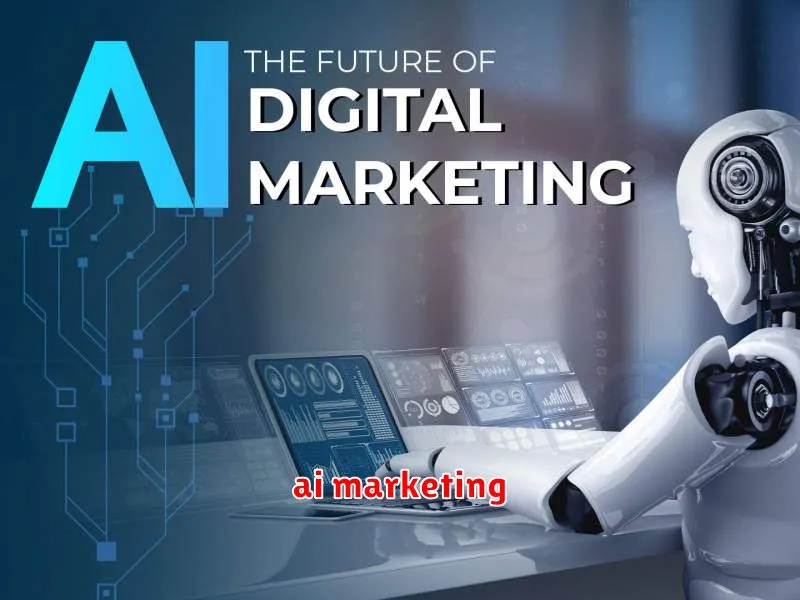In today’s digital landscape, where attention spans are shrinking and competition is fierce, marketers are constantly seeking innovative ways to reach their target audiences. Enter AI-powered marketing tools, a game-changer that is revolutionizing the way we connect with consumers. These intelligent tools leverage the power of artificial intelligence to automate tasks, personalize experiences, and optimize campaigns for maximum impact.
From predictive analytics that anticipate customer needs to chatbots that provide instant support, AI is transforming every facet of marketing. By analyzing vast amounts of data and learning from user interactions, these tools empower marketers to deliver highly targeted, relevant, and engaging experiences that resonate with their audience. With AI-powered marketing, businesses can unlock new levels of efficiency, effectiveness, and ultimately, success.
Understanding AI in Marketing: Key Concepts and Applications
Artificial Intelligence (AI) is rapidly transforming the marketing landscape, offering powerful tools and insights that can revolutionize how we reach and engage audiences. Understanding the key concepts and applications of AI in marketing is crucial for businesses to stay ahead of the curve and leverage its potential.
Machine Learning is a core concept in AI, enabling systems to learn from data and improve their performance over time. This allows AI-powered marketing tools to analyze vast amounts of data about customer behavior, preferences, and interactions, providing valuable insights for optimization. Natural Language Processing (NLP) empowers AI to understand and interpret human language, enabling chatbots to engage in natural conversations with customers, personalize content, and analyze sentiment in social media.
AI applications in marketing are diverse and continuously evolving. Personalized Recommendations powered by AI suggest products or content tailored to individual user preferences, enhancing customer experience and driving conversions. Automated Marketing Campaigns leverage AI to optimize campaign targeting, timing, and messaging, maximizing efficiency and ROI. Predictive Analytics utilizes AI to forecast future customer behavior, allowing marketers to anticipate needs and tailor strategies accordingly.
The integration of AI into marketing strategies presents numerous benefits. Enhanced Efficiency streamlines tasks like content creation, campaign optimization, and customer service, freeing up marketers for more strategic initiatives. Improved Customer Experience through personalization, tailored recommendations, and instant responses leads to higher satisfaction and loyalty. Data-Driven Insights provide a deeper understanding of customer behavior, enabling marketers to make informed decisions and refine strategies for optimal results.
AI-Driven Content Creation: Generating Engaging and Personalized Content
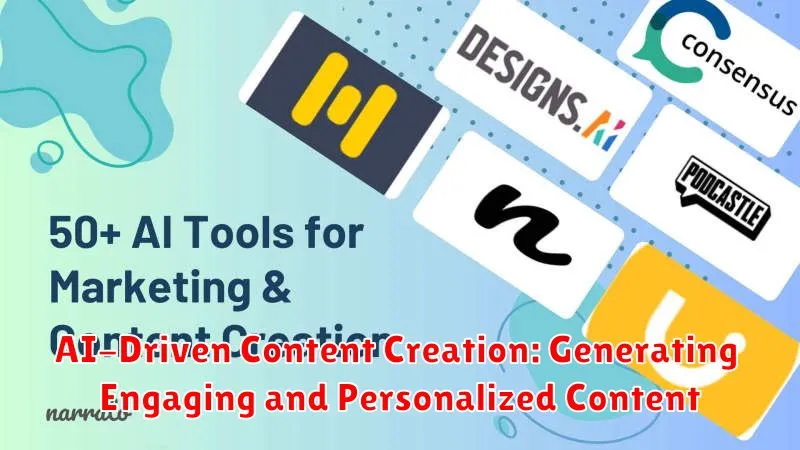
In the rapidly evolving landscape of digital marketing, artificial intelligence (AI) is revolutionizing how businesses reach and engage with their audiences. One of the most impactful applications of AI in marketing is AI-driven content creation, which empowers marketers to generate engaging and personalized content at scale.
AI-powered tools leverage natural language processing (NLP) and machine learning (ML) algorithms to understand audience preferences, analyze data, and create compelling content formats such as:
- Blog posts and articles: AI can generate outlines, write drafts, and even suggest relevant keywords and topics.
- Social media posts: AI can analyze trending topics, generate captions, and optimize content for different platforms.
- Email marketing campaigns: AI can personalize subject lines, write compelling copy, and segment audiences based on their preferences.
- Product descriptions: AI can generate accurate and engaging product descriptions that highlight key features and benefits.
By automating content creation tasks, AI allows marketers to focus on higher-level strategic initiatives, such as content strategy and audience engagement. AI-powered tools can also generate personalized content tailored to individual user preferences, enhancing the overall user experience and driving conversions.
The benefits of AI-driven content creation are numerous:
- Increased efficiency: AI can generate content at a much faster pace than human writers, allowing marketers to create more content in less time.
- Improved quality: AI algorithms can analyze vast amounts of data to identify effective content strategies and ensure the quality and relevance of content.
- Enhanced personalization: AI can personalize content based on individual user data, leading to a more engaging and relevant experience.
- Reduced costs: By automating content creation tasks, AI can help businesses save on labor costs and resources.
However, it’s important to note that AI is not a replacement for human creativity and expertise. While AI can generate compelling content, it’s crucial for marketers to review and edit the output to ensure accuracy, relevance, and brand voice. The future of content creation is likely to involve a collaborative approach, with AI tools augmenting human capabilities and enabling marketers to create high-quality content more efficiently.
Predictive Analytics for Marketing: Anticipating Customer Needs
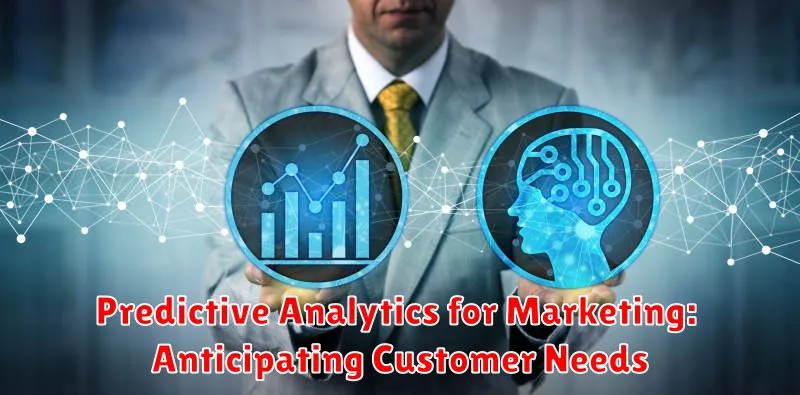
In the realm of AI-powered marketing tools, predictive analytics stands out as a game-changer, empowering businesses to anticipate customer needs and deliver highly personalized experiences. By leveraging historical data and advanced algorithms, these tools can predict customer behavior, preferences, and even future purchases.
Imagine being able to understand what your customers are likely to buy next, what promotions they’ll respond to best, and what content will resonate most with them. Predictive analytics makes this possible by analyzing vast amounts of data, including demographics, purchase history, website interactions, and social media engagement. The insights gleaned from this analysis enable marketers to tailor their campaigns with unparalleled precision, ensuring that every touchpoint is relevant and engaging.
The benefits of predictive analytics extend beyond personalized marketing. Businesses can also use it to optimize pricing strategies, forecast demand, and identify potential churn risks. By understanding customer needs and behavior in real-time, businesses can proactively address concerns, improve customer satisfaction, and ultimately drive revenue growth.
With the power of AI at their fingertips, marketers can now truly understand their customers on a deeper level. This newfound understanding allows them to create more impactful campaigns, foster stronger relationships, and ultimately build a loyal customer base. As the landscape of digital marketing continues to evolve, predictive analytics will play an increasingly vital role in helping businesses thrive.
AI-Powered Chatbots: Enhancing Customer Service and Engagement
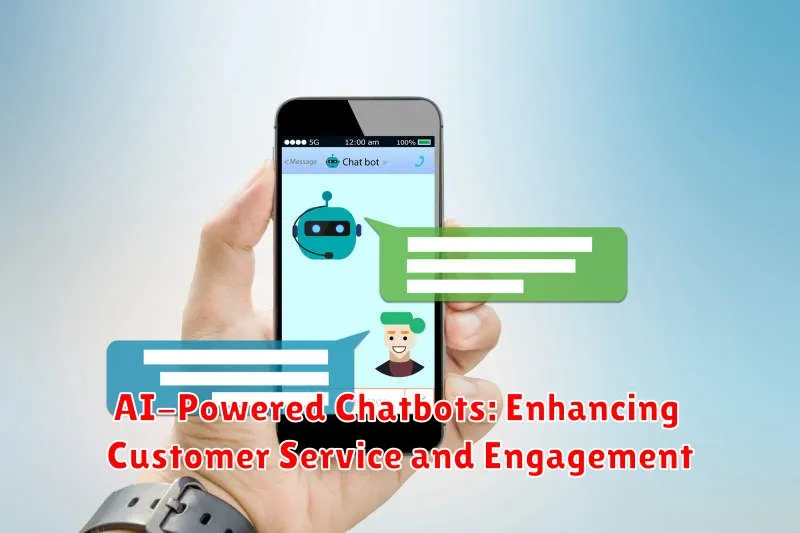
In the realm of modern marketing, AI-powered chatbots have emerged as a revolutionary force, transforming the way businesses interact with their customers. These intelligent virtual assistants are designed to simulate human conversation, providing instant and personalized support across multiple channels, ultimately enhancing customer service and engagement.
One of the most significant benefits of AI-powered chatbots is their ability to offer 24/7 availability. Unlike human agents, chatbots never sleep, ensuring that customers can get the assistance they need at any time, regardless of the hour. This round-the-clock support greatly enhances customer satisfaction, as they no longer have to wait for business hours to resolve issues or seek information.
Furthermore, AI chatbots excel at providing instant responses, minimizing wait times and ensuring a seamless customer experience. Their ability to process information quickly allows them to answer simple questions, provide basic troubleshooting guidance, and even offer personalized recommendations, all within seconds. This instant gratification keeps customers engaged and reduces the risk of them abandoning their inquiries.
Another key advantage of AI-powered chatbots is their scalability. Businesses can easily manage a high volume of inquiries without the need to hire additional customer service staff. This cost-effectiveness allows them to allocate resources more efficiently and focus on other critical aspects of their operations.
In conclusion, AI-powered chatbots have revolutionized customer service and engagement. Their ability to provide 24/7 availability, instant responses, and personalized experiences has transformed the way businesses interact with their customers, resulting in increased satisfaction, improved brand loyalty, and ultimately, a more profitable bottom line.
Marketing Automation with AI: Streamlining Campaigns and Workflows
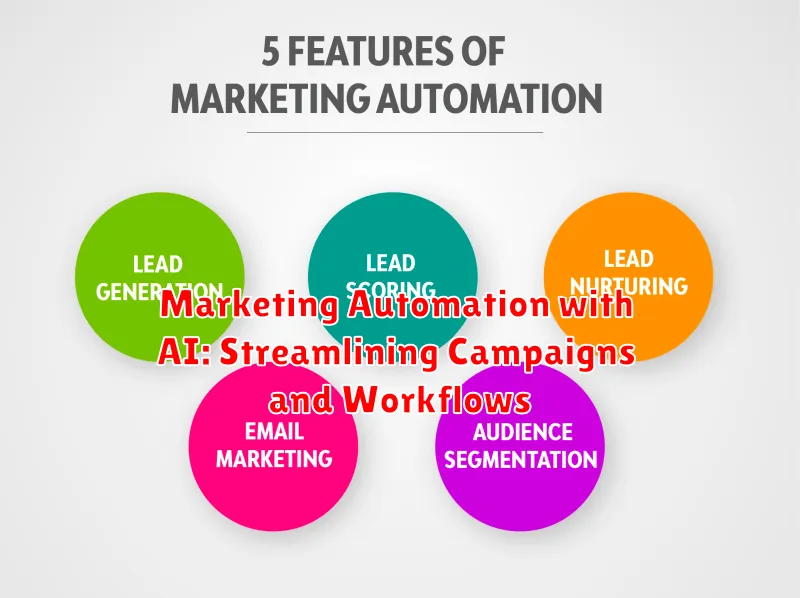
In the ever-evolving landscape of digital marketing, efficiency and personalization are paramount. AI-powered marketing tools are revolutionizing the way we reach audiences by automating tasks, optimizing campaigns, and providing data-driven insights. One of the most significant advancements is in the realm of marketing automation, where AI plays a crucial role in streamlining campaigns and workflows.
AI-powered marketing automation platforms leverage machine learning algorithms to analyze vast amounts of data, enabling them to:
- Segment audiences based on demographics, behavior, and preferences.
- Personalize messaging to resonate with individual customers.
- Optimize campaign timing by predicting when users are most likely to engage.
- Automate repetitive tasks, such as email sequencing and lead nurturing.
- Generate personalized content using natural language processing (NLP).
These capabilities significantly enhance campaign effectiveness and efficiency. By automating routine tasks, marketers can focus on strategic initiatives like content creation and customer relationship building. Additionally, AI-driven personalization enables tailored experiences that resonate with individual customers, leading to increased engagement and conversions.
Furthermore, AI-powered marketing automation platforms provide real-time analytics and insights, enabling marketers to track campaign performance and make data-driven adjustments. This continuous optimization loop ensures that campaigns remain relevant and effective over time.
As AI technology continues to evolve, we can expect even more sophisticated marketing automation solutions. These tools will further empower marketers to deliver personalized and engaging experiences, optimize their workflows, and ultimately drive better business outcomes.
Personalization at Scale: Using AI to Tailor Customer Experiences
In the ever-evolving landscape of digital marketing, personalization has emerged as a cornerstone strategy for brands seeking to engage with customers on a deeper level. Gone are the days of generic, one-size-fits-all marketing campaigns. Today, consumers demand tailored experiences that cater to their specific needs, preferences, and interests.
Enter AI-powered marketing tools, which are revolutionizing how brands personalize their interactions with customers. These tools leverage the power of artificial intelligence to analyze vast datasets, identify patterns, and predict customer behavior, enabling brands to deliver highly customized experiences at scale.
Here’s how AI is transforming personalization:
- Dynamic Content Delivery: AI algorithms can analyze real-time customer data, such as browsing history, purchase history, and demographics, to dynamically deliver personalized content, product recommendations, and offers.
- Targeted Advertising: AI can help refine targeting strategies for advertising campaigns, ensuring that messages reach the most receptive audience segments. This leads to higher engagement rates and improved ROI.
- Personalized Email Marketing: AI-powered email marketing platforms can automate the creation and delivery of personalized emails based on customer preferences and behavior, resulting in higher open rates and click-through rates.
- Chatbots and Virtual Assistants: AI-powered chatbots and virtual assistants provide instant, personalized support to customers, answering their questions, resolving issues, and providing tailored recommendations.
The benefits of personalization at scale are undeniable. By delivering tailored experiences, brands can:
- Increase Customer Engagement: Personalized content is more likely to resonate with customers, leading to higher engagement rates and stronger relationships.
- Boost Conversions and Sales: By presenting customers with relevant products and offers, brands can drive conversions and increase revenue.
- Improve Customer Retention: Personalized experiences make customers feel valued and appreciated, increasing their likelihood of returning for future purchases.
- Gain Valuable Insights: AI algorithms can analyze data from personalized interactions, providing valuable insights into customer behavior and preferences.
As AI technology continues to evolve, we can expect even more sophisticated and personalized marketing experiences. Brands that embrace AI-powered tools will be well-positioned to thrive in a competitive landscape where customer expectations are constantly rising.
AI-Powered Social Media Marketing: Optimizing Reach and Engagement
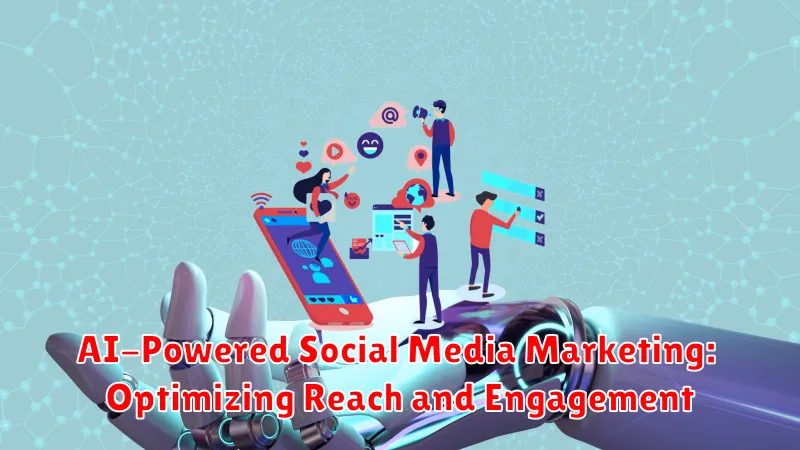
In today’s fast-paced digital landscape, businesses are constantly seeking innovative ways to optimize their social media marketing efforts. Artificial intelligence (AI) has emerged as a game-changer, revolutionizing how we reach and engage with audiences. AI-powered tools provide valuable insights and automation capabilities, enabling marketers to achieve unprecedented levels of success.
One of the key benefits of AI in social media marketing is its ability to personalize content and target the right audience. AI algorithms analyze user data, including demographics, interests, and online behavior, to identify specific customer segments. This allows marketers to create tailor-made content that resonates with individual users, increasing engagement and conversions.
AI also plays a crucial role in optimizing content scheduling and posting times. By analyzing audience activity patterns, AI tools can determine the optimal times to post content to maximize visibility and engagement. This ensures that your messages reach the target audience when they are most receptive, leading to higher click-through rates and conversions.
Moreover, AI-powered social media analytics provide valuable insights into campaign performance. These tools track key metrics such as reach, engagement, and conversions, allowing marketers to monitor progress and make data-driven decisions. By understanding what works and what doesn’t, marketers can refine their strategies and maximize their return on investment.
In conclusion, AI is transforming social media marketing by enabling personalized content, optimizing scheduling, and providing insightful analytics. By leveraging these powerful tools, businesses can achieve a significant competitive advantage, reaching their target audiences effectively and driving meaningful engagement.
Programmatic Advertising with AI: Targeting the Right Audience at the Right Time
In the ever-evolving landscape of digital marketing, programmatic advertising has emerged as a game-changer, empowering brands to reach their target audience with unparalleled precision. At the heart of this revolution lies artificial intelligence (AI), which has transformed how advertisers strategize and execute their campaigns. AI-powered programmatic advertising allows for highly targeted and efficient ad delivery, ensuring that the right message reaches the right person at the right time.
One of the key benefits of AI in programmatic advertising is its ability to analyze vast amounts of data. AI algorithms can process information from various sources, including user behavior, demographics, and website interactions, to create detailed audience profiles. This allows advertisers to segment their target audience into specific groups with shared characteristics, ensuring that their ads are delivered to individuals who are most likely to be interested.
Furthermore, AI-powered programmatic advertising facilitates real-time optimization. By continuously monitoring campaign performance and user interactions, AI algorithms can dynamically adjust ad bids and placements to maximize reach and engagement. This dynamic approach ensures that campaigns remain relevant and effective, even as user preferences and market conditions change.
The power of AI in programmatic advertising extends beyond audience targeting. AI can also be used to personalize ad creative. By analyzing user data and preferences, AI can tailor ad messages and visuals to resonate with individual users. This personalized approach enhances the user experience and increases the likelihood of conversions.
In conclusion, AI is revolutionizing programmatic advertising by enabling precise audience targeting, real-time optimization, and personalized ad experiences. By leveraging the power of AI, advertisers can reach the right audience at the right time, maximizing campaign effectiveness and achieving their marketing goals.
Sentiment Analysis and Brand Monitoring: Understanding Customer Perception
In the ever-evolving landscape of digital marketing, understanding customer perception is paramount. Sentiment analysis and brand monitoring, powered by AI, provide invaluable insights into how customers feel about your brand, products, and services. These tools analyze vast amounts of online data, including social media posts, reviews, and forum discussions, to identify trends and patterns in customer sentiment.
Sentiment analysis goes beyond simply identifying positive or negative feedback. It delves deeper to understand the underlying emotions driving the sentiment. By analyzing the nuances of language, AI algorithms can categorize sentiments into categories like joy, sadness, anger, or frustration. This granular understanding allows businesses to tailor their marketing strategies to address specific customer concerns and emotions.
Brand monitoring complements sentiment analysis by providing a comprehensive view of your brand’s online presence. It tracks mentions of your brand across various platforms, enabling you to stay informed about how customers are talking about your products, services, and overall brand image. This real-time monitoring allows you to proactively address any negative feedback or capitalize on positive sentiment to build stronger customer relationships.
The benefits of integrating sentiment analysis and brand monitoring into your marketing strategy are undeniable. You gain a deeper understanding of your target audience, identify potential issues before they escalate, and optimize your marketing campaigns for maximum impact. By leveraging the power of AI, businesses can harness the voice of the customer and make data-driven decisions that drive brand growth and customer loyalty.
The Future of AI in Marketing: Trends and Opportunities
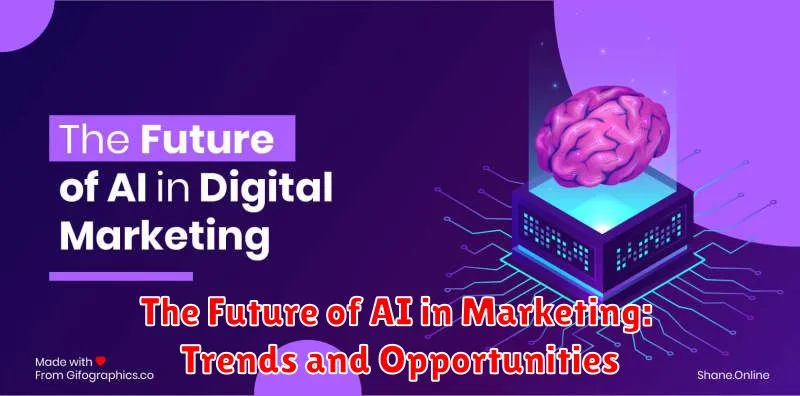
Artificial intelligence (AI) is rapidly transforming the marketing landscape, offering unprecedented opportunities for businesses to reach their target audiences more effectively. AI-powered marketing tools are becoming increasingly sophisticated, enabling marketers to automate tasks, personalize experiences, and gain valuable insights into customer behavior. As AI continues to evolve, its impact on marketing will only grow stronger, leading to exciting new trends and opportunities.
One of the most significant trends in AI-powered marketing is the rise of hyper-personalization. AI algorithms can analyze vast amounts of customer data to create highly personalized experiences. This includes tailoring website content, product recommendations, and marketing messages to individual preferences. By delivering relevant and engaging content, businesses can improve customer satisfaction, increase conversions, and build stronger relationships.
Another key trend is the increasing use of predictive analytics. AI models can analyze past data to predict future customer behavior. This enables marketers to anticipate needs, optimize campaigns, and even personalize offers in real-time. For example, AI can be used to identify customers who are likely to churn and proactively offer incentives to retain them.
The future of AI in marketing is brimming with exciting possibilities. As AI technologies continue to advance, we can expect to see even more innovative tools and solutions emerge. Marketers who embrace AI and leverage its capabilities will be well-positioned to thrive in this rapidly evolving landscape.

